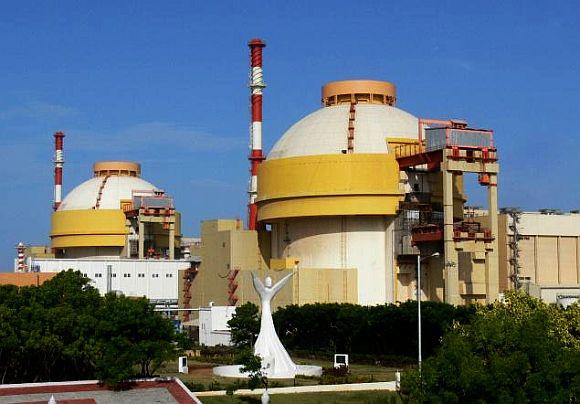Greenpeace questions govt for pushing high risk Kudankulam project
August 11, 2016 01:31

With Prime Minister Narendra Modi and Russian President Vladimir Putin jointly dedicating the first unit of the Kudankulam Nuclear power plant, Greenpeace India on Wednesday questioned the Centre for pushing the venture which places communities and environment at "high risk" of nuclear contamination.
It said the venture is particularly "troubling" as India lacks preparedness to handle a nuclear emergency, and also it is at the odds with the prime minister's focus on clean growth.
The green body said solar and wind energy are far safer renewable alternatives to nuclear or thermal power.
"Safety aside, decentralised renewable energy provides a far better chance of protecting India's energy security as well as ensuring the fundamental right of energy access to over 200 million people," Greenpeace India campaigner Priya Pillai said.
Over the long-term, she said it would be in India's best interests to prioritise optimal utilisation of its existing power capacity, cut down on transmission and distribution losses, and continue to pursue its strategy of setting right
financially distressed discoms and meeting its laudable renewable energy targets.
Noting that Kudankulam has a population of over 10 lakh and people living within a 30-kilometre radius of the plant, Greenpeace India, in its Red Alert report released in June, highlighted that population density around nuclear power plants in India poses a significant evacuation challenge in the event of an emergency.
India's current evacuation plans only provide support within a radius of 16 km in case of an offsite nuclear accident while for Fukushima, Japan had to set an evacuation zone of 30 km, it said.





 © 2024 Rediff.com -
© 2024 Rediff.com -